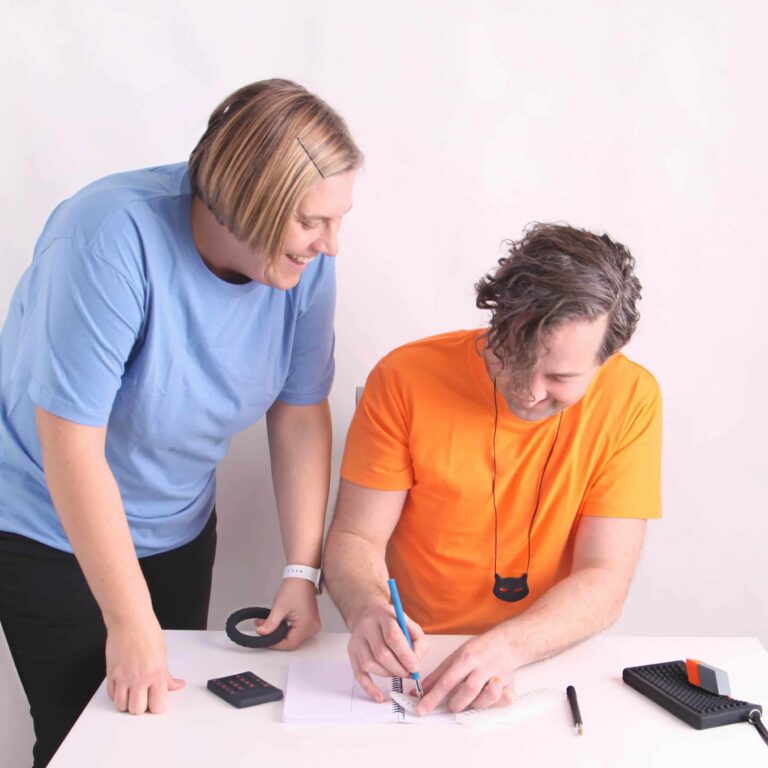
Students with sensory processing difficulties can face unique challenges that can impact their ability to learn and thrive in the classroom.
This comprehensive training course will help you identify, manage, and support students with sensory processing difficulties.
Learn how to recognise the signs of sensory processing difficulties, how to manage these challenges in the classroom, and how to provide effective support to your students.
You’ll learn how to recognize the signs of sensory processing difficulties, how to manage these challenges in the classroom, and how to provide effective support to your students.
Gain a deeper understanding of sensory processing difficulties and how they can impact your students.
You’ll also learn practical techniques for managing sensory overload, supporting self-regulation, and promoting positive behavior in the classroom. Plus, we’ll provide you with valuable resources and tools to help you continue to support your students in the future.

Get in touch to ask questions about any of the content covered sensory training for professionals. Contact us
Our virtual training provides the flexibility to learn at your own pace, while our live remote training offers the opportunity to interact with our expert trainers and ask questions in real-time. For those who prefer in-person learning, our training is also available on-site at your school.
This section will cover the signs and symptoms of sensory processing difficulties to help teachers and professionals identify students who may need extra support. Key points include identifying sensory seeking and sensory avoiding behaviors, and understanding the difference between sensory processing difficulties and other conditions. Participants will benefit from being able to identify students who may need additional support and being able to provide appropriate interventions.
In this section, participants will learn about sensory diets and how to develop them for individual students. They will also learn about classroom strategies to support students with sensory processing difficulties, such as creating sensory-friendly classrooms and incorporating movement breaks. Key points include understanding the importance of sensory input and the impact of sensory overload on learning. Participants will benefit from being able to create and implement effective sensory diets and strategies for their students.
This section will cover strategies for managing sensory overload in the classroom, such as creating sensory breaks, providing sensory tools, and incorporating calming activities. Key points include understanding the triggers for sensory overload and how to prevent and manage it. Participants will benefit from being able to create a sensory-friendly environment that promotes learning and reduces stress for their students.
In this section, participants will learn about the importance of collaboration and communication between teachers, parents, and other professionals to support students with sensory processing difficulties. Key points include effective communication strategies and understanding the role of each team member in providing support. Participants will benefit from being able to work collaboratively with others to create a supportive learning environment for their students.
This section will cover the process of developing and implementing IEPs for students with sensory processing difficulties. Key points include understanding the components of an IEP, developing measurable goals, and monitoring progress. Participants will benefit from being able to develop effective IEPs that meet the unique needs of their students.
In this section, participants will learn about sensory integration therapy and how it can be used to support students with sensory processing difficulties. Key points include understanding the principles of sensory integration therapy, identifying appropriate interventions, and incorporating therapy into the classroom. Participants will benefit from being able to provide effective sensory integration therapy for their students.
This section will cover resources and support available for students with sensory processing difficulties and their families. Key points include understanding community resources and advocacy organizations, and accessing funding and insurance for therapy. Participants will benefit from being able to connect families with appropriate resources and support to promote success and well-being for their students.
Set up sensory stations around the classroom with different tactile activities such as a sand tray, play dough, textured fabrics, and other sensory toys. Students can visit these stations during independent work time or during specific sensory breaks throughout the day.
Incorporate movement breaks into lessons, such as doing yoga poses or stretches, jumping jacks, or dance parties. These breaks can help students regulate their sensory needs and refocus their attention for learning.
Use visual schedules and checklists to help students with sensory processing difficulties stay on track during the day. This can include pictures or symbols for each activity or task, which can help students understand and follow the routine more easily.
Sensory Matters Podcast
Free Sensory Support Community
Can Chewigems Help Keep Your Teeth Clean?